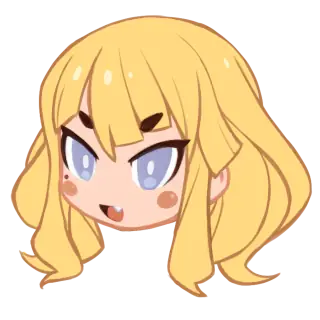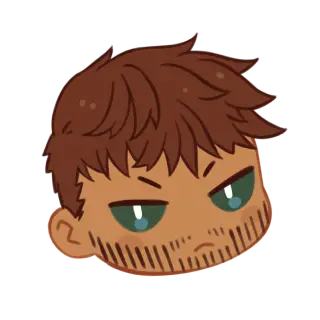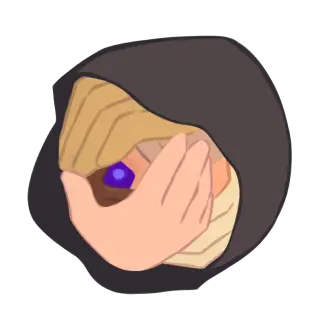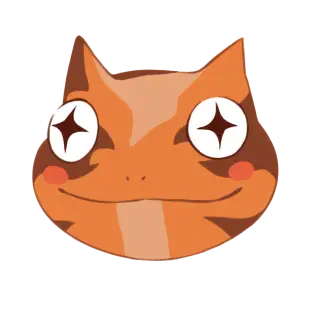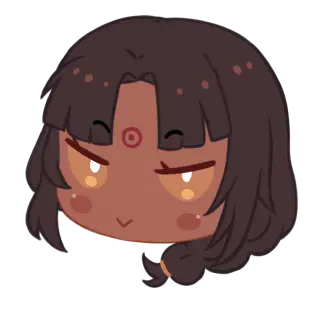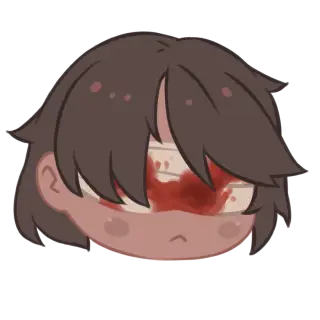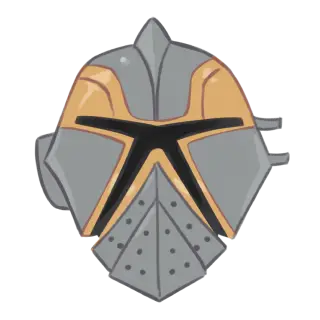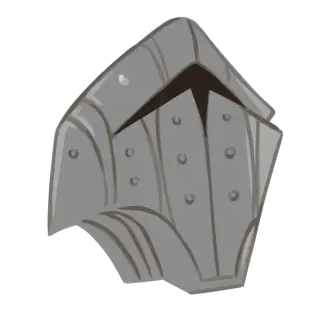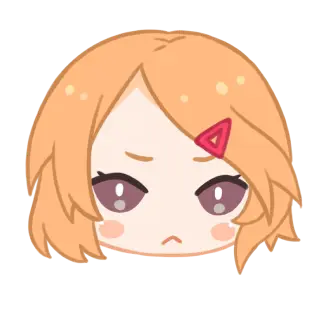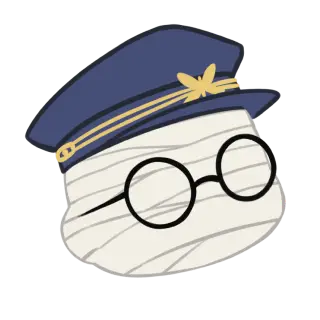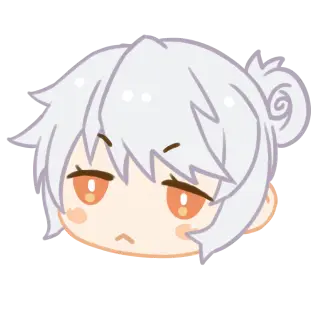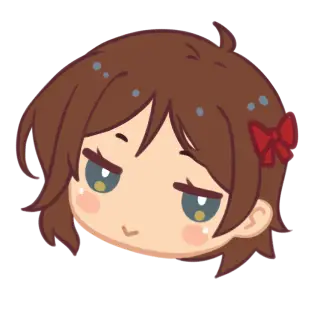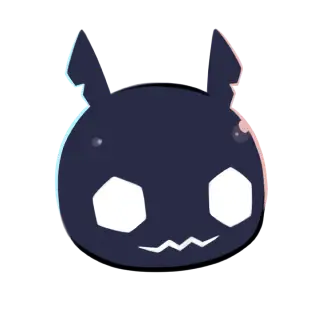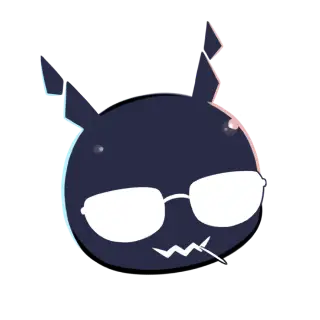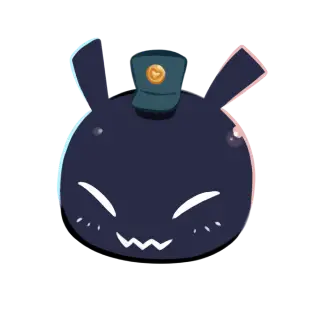Destiny hands its cards down to mankind without regard, the only thing that matters is the way one uses the opportunities they’ve been given. It is not so simple as understanding one must play a card at a given time, but actively working to create the circumstances themselves in which they play the card. Destiny speaks not to mankind, but rather it is mankind who speaks to destiny when they finally understand one of the great secrets: they are not led by destiny, but destiny is led by them.
Rayda was senior hunter and leader of the Jiroman tribe. Life was simple, strenuous, and wonderful. Every day was a blessing, and he really did believe he made the most of his days.
This shifted completely when dragon-kin scouts located a neighboring wanderer tribe within Jiro. Riverene, nestled in the lazily-flowing and food-rich lowlands, was attacked by a group of creatures Rayda and his fellows had never heard of before – great-sized lizards with skeletons like men.
Upon surveillance, Rayda realizes that the lizards are not here for land, but for them. The victorious meat hordes, led there by their scouts, devoured fallen humans then and there, capturing the rest to eat for later.
The panic that set upon Mountainene, Rayda’s own village, was paralyzing. Rayda had a plan, however, an ancient technique taught by his ancestor when they had to follow the plains oxen.
At the cut of sunset, Rayda’s town lifted its feet, packed on the backs of his fellow Jiromen and oxen, and set forth to the South, to Desertene’s long dunes and heavy winds. All was going according to plan for the first few weeks, but eventually the enemy’s network of scouts figured their maneuver, and a meat horde was sent in.
Despite Rayda’s pleas, the majority of the village turned to fight bravely, leading to a catastrophic defeat. The man leading the charge to strike against the dragons, the trusted and strong Adah, was gruesomely torn to shreds and eaten in front of the captured formation of the village. Everyone but Rayda and a deserter named Palhane was killed or captured, and they became the sole observers to their village’s fate. To make an example, the meat hordes devoured randomly chosen people at whim. Villagers chosen from the elderly to the infants were eaten in the most explicitly violent fashions imaginable, the dragons taking great pleasure in the looks on the family’s faces as their beloved met hideous, dehumanizing death.
Rayda’s wife, the steadfast and brave Roya, is among those who were eaten, as the dragons shouted out to the rocks, calling the tribe leader a coward. A search was conducted for Rayda and Palhane, but after a few minutes it was called off, and the horde commander led his company back into the wilderness.
That night Rayda planned to kill himself, but Palhane stopped him, saying that the only thing they can do is to start anew. In a fit of mania, Rayda strikes Palhane, and starts off for the tracks of the horde. He felt as though even she could not understand the weight of his failure, his weakness as a man.
Without resting, Rayda offered prayers on the trek to locate his village. Surely God, for whom Rayda had no other name for, would save them.
Rayda traveled days to the East, and the following morning discovered the hideous feeding pits, where the dragon men spawned their young and raised them on the meat of anything they can find. He realized that the legion of dragons was growing quickly and had many mouths to feed. He leaned over the canyon to see the last of the oxen devoured by a frenzied mass of human-like lizards.
Something inside him told him that he had until that evening to prepare. The dragons did not patrol the upside of the canyon, giving him free movement to create a plan and execute to save as many of his people as possible. Working off his simple knowledge of cause and effect, Rayda created a sort of Rube Goldberg machine comprised entirely of piled rocks and boulders. He knew about falling rock traps from his long years as a hunter, and was able to to successfully place each rock at the very ledge of the canyon’s slope.
Twelve hours later, with his body was spent beyond words, he was moved to act before he was ready.
He witnessed the tribe’s survivors led out of their pens to be butchered and fed to the bulwarks of young dragon-kin. Rayda spots his son, the headstrong and intelligent Rodin, is still alive, but is stepping up in line to the cutting block.
Wasting no more time, Rayda springs his trap, losing the multiple tons of rocks tumbling into the canyon. He had to make the call to let them loose early and lose the element of surprise, or let his son be chopped to bits and eaten like an animal.
The rocks proved outstandingly effective against everyone and everything inside the canyon, with person sized rocks bouncing from the canyon walls at fatal velocity. Dozens, and then hundreds, and then thousands are killed as Rayda sets down with his spear to either rescue his son or die trying. With a heated mix of stealth and ferocity, Rayda stabs his way down the hewn rock stairways leading into the pit, where he finally reaches the dusty, bloody depths of the pit.
He finds his son, his hand jutting out from under the resting place of one of the massive rocks that had fallen into the canyon. Rayda had killed him. The few that have heard the story often say that to be crushed and instantly killed would have been better than being butchered and made food to a meat horde, but to Rayda, it was as if he had taken a risk that invalidated everything he was as a human – he became apart from God, a killer of his people.
Rayda is quickly seized by the horde, their numbers still immense despite the avalanche killing a good fourth of them. His arms and legs are broken, and in a spiteful rage the dragon men give him a front-row seat to watch the rest of his tribe be killed, now with lengthy torture replacing the efficient, gruesome slaughtering that is the typical of their kind.
The tribe leader watches as men, women and children are slowly, savoringly killed, the weeping and begging reaching pitches of desperation that emptied his soul out into the universe.
His belief in God is destroyed, and he cries out to curse him.
Then, just before the final boy is cut into, something happens:
All of the dragon-kin begin laughing.
Thousands of them laugh without stopping, their bodies overcome with some unknowable urge. It’s as if a long-forgotten evolutionary instinct triggered, and something about the environment changed.
They did not stop laughing.
Rayda and the boy stare at one another across the chopping block as slowly, steadily, the dragon-kin begin bleeding from their eyes, ears, mouths, and elsewheres, their laughter replaced with the unnerving vomiting of blood and cries of pain attempting to fight through the forced guffaw. Five minutes later, everyone in the canyon but the two Jiromen were dead, a massive pool of blood lining the ground.
But also, there was one more.
From the blood itself, another one rose up, a strange man dressed in clothes Rayda does not recognize from any of the other clans. The figure picks up the boy, a considerate orphan named Ohkiij, and then looks back to Rayda with a single, glowing, Indigo eye.
“And with this, you will be the last of your kind on earth,” the figure says before seeping back into the blood with Ohkiij, leaving Rayda completely alone.
It took several days before Rayda was capable of walking. He could only subsist on blood and raw meat in the mean time, and the insects of the desert found the mass slaughtering of bodies late enough for him to eat and for the most part keep the food down.
The figure’s words weighed on him like a great rock crushing his mind. He couldn’t truly be the last one, could he?
In the long, limping trek across the desert back to Riverene, Rayda heard no voices in his head, no expectation of deity, and no societal expectation. Like a man with a singular purpose, he spent the next several days traveling through familiar lands on the way home. He spots a town some ways off, one that he had originally passed by on his mad rush to save his tribe, and pays a visit.
No one is there, only a few skeletons. The fact begins cutting through to him that he may very well be alone. There’s only one last place to check.
Returning to the canyons where the Jiroman were captured, he searched for Palhane, and found her dead from starvation. He realized that she was raised to be a weaver, and had known nothing of hunts. Her last human interaction was him hitting her and abandoning her to fend for herself.
All at once, the shame of his failure returns in a flood of emotion. The prior disconnection from the world of culture and meaning reappears to accuse him of the worst leader in history, and only fit to die.
Separated from his family and tribe, all of which trusted him with their lives, he understands at once the only right thing to do is to travel with them into death. He steps up the cliffside, and looks out to the great river that his homeland is named after. With a breath, he prepared to throw himself off, but something keeps him from it. “How hideous,” he thinks, “that I am so cowardly as to not even make amends for his sin.” Rayda sits at the ledge, just an inch’s opinion from death. It is a clear night, and he watches the stars for some hours. He can see an eye in the stars, staring down back at him.
Suddenly, he hears a peep from below.
Taking care not to be seen, he finds a family of desert foxes, surrounded by the predators of the region, the wolf-like cavinas. Rayda watches as the mother fox barks loudly to protect her cornered children, but the cavinas are undeterred. The moment before it comes to violence, Rayda makes his presence known. The cavinas run immediately, and the foxes split sharply off in the opposite direction.
Rayda takes a moment to think about what happened; at this time he’s in a state of mind to attach meaning to events.
With some patience, he quietly returns to where his village had been ambushed. He looks through the wrecked history of his tribe, and finds the old scrolls. He had read them, but only a single time to initiate himself into the tribe. To say he had read them in the first place would be a exaggeration, he was far more focused on his beautiful to-be wife and the hunt in those days.
Now, Rayda believes he is ready.
He returns to the cliffside with the scrolls, and reads under the moonlight. With his new-found consideration, he finds truths in the old writings that he had not considered before. What seemed to be anodyne, trivial details formed into timely and savvy advice in leadership, life, and understanding the nature of the universe. Deeper into the most ancient and arcanely-written scrolls, Rayda discovers passages that he had entirely overlooked at first, but upon consideration, seems to describe meditation for the purpose of “reforming the universe according to one’s own body”.
Years pass, Rayda creates his own writings, and prepared with an armor hewn of ore compressed of his own hands, scriptures both old and new, and the banner of his people across his chest, Rayda answers searches the world for one purpose: to destroy the authority of the dragons and return them to their appropriate place on the celestial ladder of creation.
Before long, he hears the call from Rondi against the dragons, and thus he crosses the fabric of the realms to begin his charge as her Golden Knight.

